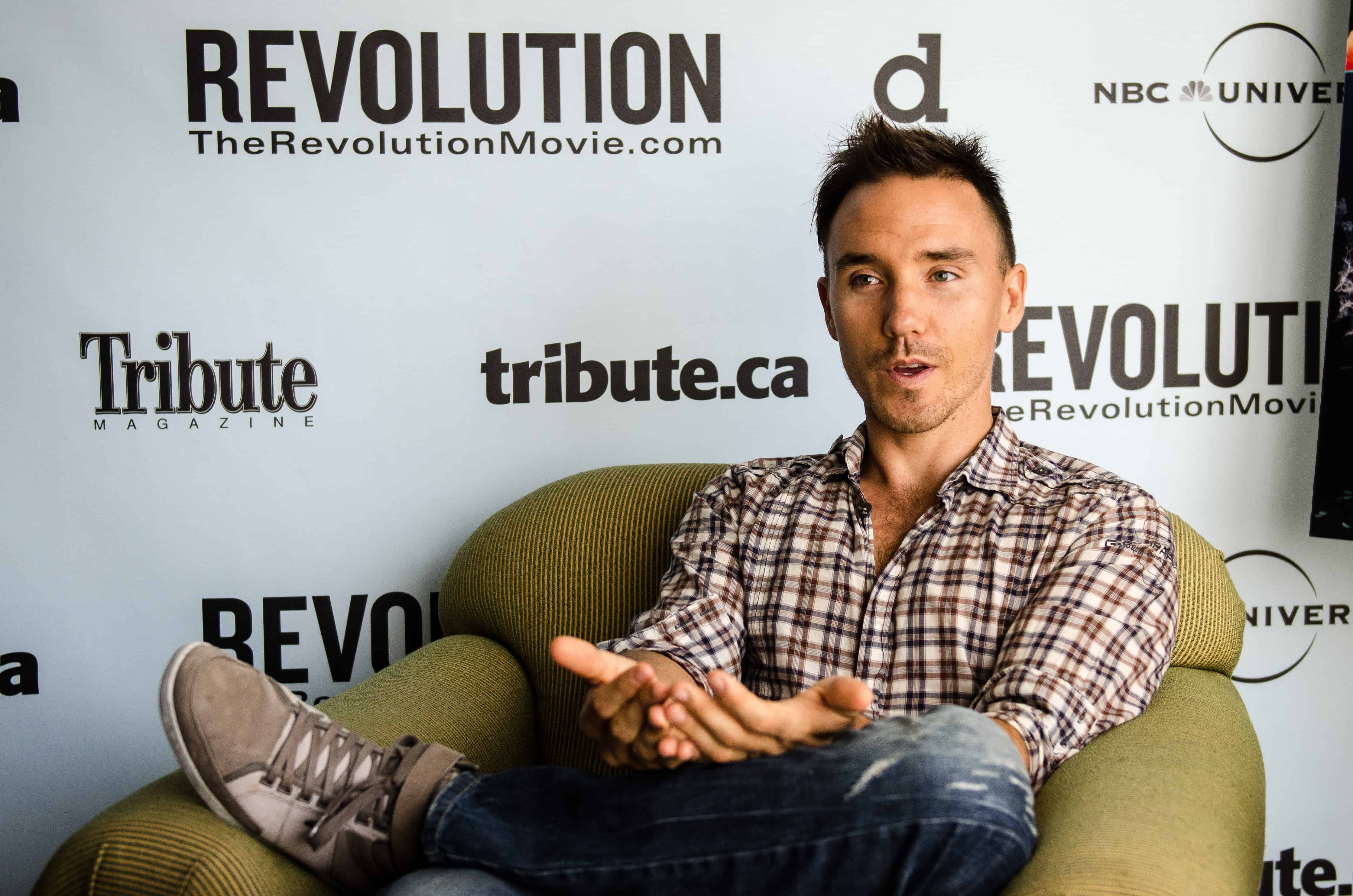In 2010, China saw the premiere of Toronto-born filmmaker Rob Stewart’s debut film, Sharkwater. During a promotional Q&A in Hong Kong — a city whose culture, cuisine, and economy thrive on shark fins — a young woman asked Stewart what the point of saving sharks was if all fish, according to the United Nations, will be depleted by 2048.
Stewart knew that there was no point, unless something changed. In that moment, it seems, Stewart realized the implication not only of humanity’s detrimental impact on the Earth’s ecosystems, but also of its apathy towards preserving the health of the environment. This realization would lead to his next film – one that is much larger in scope than Sharkwater.
“If I could make a film about the bigger picture, then maybe something bigger would happen,” Stewart explained during a recent interview.
Fifteen countries, four years, and hundreds of hours of footage later that film, Revolution, is due to be released in 2013. The film responds to Stewart’s previous documentary with a firm statement: before we attempt to save whatever lives under the ocean’s surface, we must first look at what’s happening on land.
“By the time I was done releasing Sharkwater, it was blaringly evident that there was a much bigger issue afoot,” Stewart said. “It wasn’t sharks and trees and pandas we needed to be saving. It was us.”
Unlike Sharkwater, which benefits from the specificity of its subject matter, Revolution covers a much bigger topic: people.
For starters, there are the people, the film’s subjects, who range from impassioned kids to expert ecologists. The most impressive story (and there are many others) focuses on a sixth grade class from Saipan, who, inspired by their teacher’s screening of Sharkwater, wrote to their local government, demanding that it put a stop to shark finning. Saipan is now the second authority in the world to completely ban the sale of shark fins, largely thanks to that sixth grade class.
And then there is the collective human race, which Stewart documents by displaying the final, ugly product of its actions. Humans are treated as an off-screen antagonist, whose greenhouse gas and carbon dioxide emissions, among other damaging practices, are contributing to (if not causing) ocean acidification. By destroying coral reefs and effectively killing the millions of sea creatures who live there, we are, in turn, destroying the very ocean life that provides much of our oxygen.
Stewart was laid back and often humble when he spoke about his latest film during our interview last week. It seemed hard to believe that someone so reserved about such a pressing issue could dedicate so much passion to his cause.
But Stewart’s greatest asset as an environmentalist is his personality, which informs his cinematic method. Rather than simply scare his viewers, Stewart plays on our sentiments by capturing lush coral reefs and exotic sea creatures, and then juxtaposing those images with the grey wasteland of the Alberta tar sands.
The director’s humility also motivates and complements his agenda. “I don’t really know what sets me apart because I don’t really know what everybody else is doing,” he admitted. “I know what I’m trying to do: I’m trying to give the public all the information they need to make better decisions.
“The next step is getting Revolution seen by one billion people. The biggest issue facing the planet is awareness. Social media is going to be the tool and kids are going to lead this revolution.”
While the content of his documentaries is often bleak, Stewart remains optimistic that his film will not only inform, but also inspire his audiences.
“Sharkwater proved to me that humanity is good, that people, when educated about the issue, will make better decisions and they’d fight for ecosystems and species’ survival,” he said. “I’m hoping with [Revolution] that people [will] know where they’re going.”
Stewart’s optimistic attitude does not, however, extend towards politicians — particularly the ones responsible for funding the fisheries and the oil and gas industries that are known to have devastating effects on the environment.
“I’m done trying to convince the politicians,” he explained during our interview. “The governments are in with the corporations, so the governments are not acting in the best long-term health and happiness of their citizens, but for short-term profit.
“The greatest surprise was learning how terrible Canada is environmentally … especially when the country has this veneer of being green and environmentally-friendly.”
In spite of these challenges, Stewart continues to have ambitious dreams, if only because he understands the gravity of ignoring the grave impact that humans are having on the environment.
“We have built a civilization over the last 250 years that is destroying the world we depend on for survival,” he said. “It literally consumes our life-support system and our economic growth comes at the cost of life.
“Things would change drastically if the public knew what was going on… We need big risks and big dreams right now. We need to change this world radically. It’s not going to take Priuses and recycling.
“It’s going to take a revolution.”


